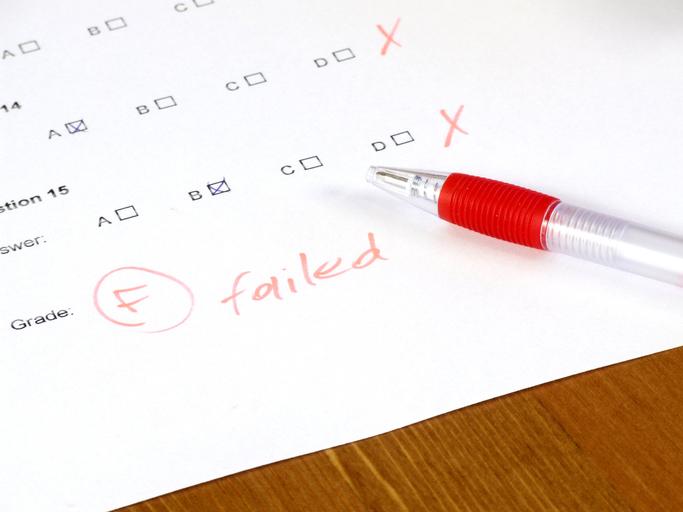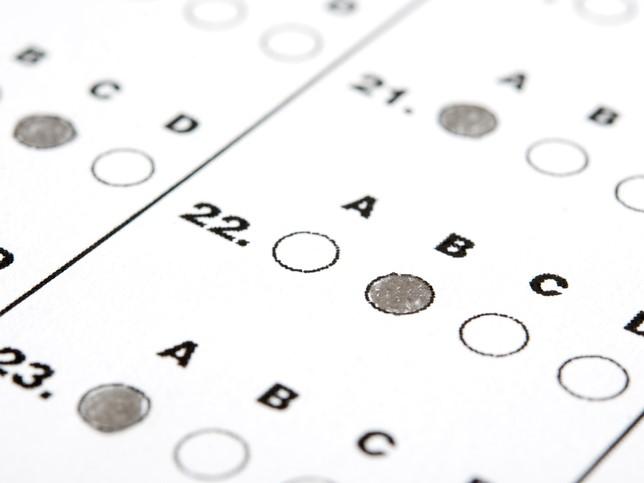
The problem with ungrading? Everyone’s doing it wrong

You may also like
Education loves a bandwagon. Any notion that claims to be “research-based”, carries an “un-” prefix before it or a colon after it and is shared enough on social media is sure to cause a stir. Even better is an idea with all of these elements that simultaneously purports to solve one of education’s many persistent problems.
One education idea now in vogue is ungrading. Done right, ungrading should turn education on its head. The problem is, almost everyone is doing it wrong.
Ungrading is an approach to assessment that dispenses with the traditional pedagogical reliance on grades, rubrics, learning outcomes and the very idea of mastery. The phrase was coined by Jesse Stommel, a professor and long-time colleague of mine, who argues that ungrading permits K-12 teachers and college professors to create opportunities for students to succeed rather than limit their possibilities.
- Grades are dehumanising, but ‘ungrading’ is no simple solution
- Turn the marking process on its head by using ‘reverse grading’
- Education and grades are often in direct conflict – it’s time for a messy divorce
Stommel believes, as he wrote in this publication a year ago, that “grades are anathema to the presumption of the humanity of students”. Using grades to assess students is not a matter of policy, process or even practice. It’s a question of trust, understanding and human relationships.
The ungrading movement rests on a foundation of critical pedagogy that, as educator and philosopher Paulo Freire once wrote, seeks to make students the subject rather than the object of the learning process. In its purest and rarest form, ungrading is a philosophy and not a practice, one bent on turning the tables in the classroom so that students can intervene in their own education.
Yet the vast majority of applications of what is referred to as ungrading rely on rubrics, stated learning outcomes and, yes, grades by other names and clever means. Educators continue to bow to the prevalence of mastery and evaluation. Instructors remain in control of the process and determine what success looks like. Ungrading as it is commonly practised has not changed the way students are assessed in any meaningful way. It has not helped students overcome their wariness or outright fear of being graded. It has not given students agency. The long shadow of grades – which pit students against one another in a fierce contest for good scores and top rankings – continues to darken the classroom. This power dynamic remains unchanged and unchallenged.
Instead of regarding ungrading as the latest plug-and-play best practice, we need to be talking about the philosophy behind it. We need to care for students and trust them and change the way we think about how learning happens. Learning should not be about making a grade. It’s much bigger than that.
In a teaching career of more than 20 years, I practised alternative assessment but never called it “ungrading” because grades were never part of the equation. Grading was incongruous with my teaching practice, which dispensed with lectures and traditional assignments in favour of students following their curiosity where it led them and striving to reach their own outcomes rather than travelling a predetermined path. I have always believed that learning should not be confined but liberated.
Grades serve only to fence in students, to hold them back from learning, to force them to pay attention only to what they need to get through a course. Eventually, students realise that they come to college not to learn – not to ask profound questions, not to gain confidence, not to attain insight or self-awareness – but to succeed. And success is measured by grades that suggest a student has achieved some finite understanding of a field that is, in reality, boundless.
Grades, meanwhile, get baked into the identity of a learner: I am an A student; I am a B/C student; I failed school; and so on. That is how students identify themselves and each other and how professors view them as well. Worse, the grading label clings to students long after those grades cease to be relevant. If grades have an expiration date, it stands to reason that grades never really mattered in the first place.
Ungrading is about rearranging the room, placing the teacher among the students and requiring steady engagement with one another. Teachers and students share both roles; they should learn together. There should be a desire to humanise education, to make learning full of mystery and wonder rather than relying solely on what the teacher knows. Ungrading done right – by colleagues such as Jesse Stommel, Cathy Davidson and John Warner – has nothing whatsoever to do with grades. What matters most is people. Ungrading merely points out that we should have never been concerned with grades in the first place.
Now is the time to undertake a fundamental review of our views towards and practices of assessment. The pandemic has opened debate among students and educators about what constitutes effective pedagogy and authentic assessment. Our internal research at Course Hero conducted during the pandemic revealed something we rarely see: alignment between students and faculty, who agree that measuring competence and current grading practices are at odds with one another.
I wish that instructors would cease seeking credibility and respect for their sometimes convoluted and strident versions of ungrading. I wish that teachers would remember what it’s like to be a student – especially a student trying to understand a teacher. What I really wish is that educators would climb aboard the student bandwagon and help steer it towards a destination where learning is unbound and possibilities are limitless.
Sean Michael Morris is vice-president of academics at Course Hero.
If you found this interesting and want advice and insight from academics and university staff delivered direct to your inbox each week, sign up for the THE Campus newsletter.
Do you work in US higher education? Join us in Los Angeles at THE Campus Live US on 9-10 November where we will unite academics and senior administrators from institutions across the country to discuss how to take on the sector’s shared challenges. Register to join


